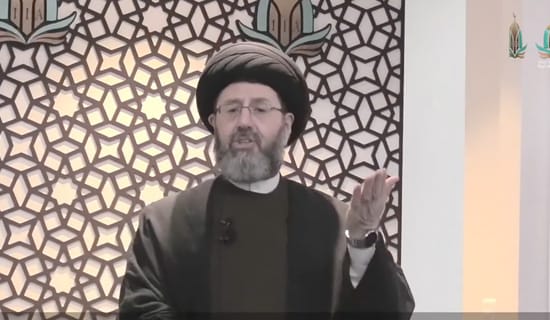
In an interview with the UAE-based Alaan TV, the former mufti of Al-Qaeda, Abu Hafs Al-Mauritani, analyzed the decline in the popularity of Al-Qaeda, attributes it to the void left by Bin Laden, the rise of rival organizations, and infighting between the various Jihadi groups. Abu Hafs said that it was premature to talk about replacing Ayman Al-Zawahiri as the leader of Al-Qaeda, but added that if the leadership were to move from Pakistan and Afghanistan "to the center of action, to the heart of the Arab world," this could spell a new stage in the history of Al-Qaeda. The interview aired on June 22.
Following are excerpts
Abu Hafs Al-Mauritani: There is undoubtedly a decline in the popularity of Al-Qaeda and the Islamic State organizations, but a decline is one thing, and a lack of popularity is another. This decline has its reasons. When the Jihadi groups direct their operations mainly against foreign enemies, or against targets that their supporters consider to be legitimate, their popularity rises and the number of their supporters rise. Conversely, when they engage in conflicts and internal battles, which consumes, first and foremost, Muslims, their popularity declines and sometimes even disappears.
When Al-Qaeda, for example, directed its operations against Western countries, especially against the US, new waves of young men would join the Jihad after every operation. Money and contributions would also come in, and the popularity of Sheikh Osama Bin Laden would grow. But when Al-Qaeda engaged in conflict with some of the regimes in power, and from being a conflict with the state, this grew into a conflict with the society, with civilian casualties and Muslims killed, the popularity of Al-Qaeda began to wane. The same goes for the Islamic State organization: When it was fighting the American occupation, it had many supporters. But when it began to accuse Muslims of heresy, and to fight other groups, even Jihadi groups, its popularity began to wane.
[...]
Interviewer: In your view, is the decline [in Al-Qaeda's popularity] stems from a weakness in the character of Ayman Al-Zawahiri, or from a weakness in his strategy? Or is it a combination of both factors?
Abu Hafs Al-Mauritani: The organization should be the judge of the success or failure of the leadership. I do not share your opinion that Dr. Ayman is a failure [as a leader], but what I can say is that Dr. Ayman is not the same as Sheikh Osama, Allah's mercy upon him. The decline in the popularity of Al-Qaeda under Dr. Ayman Al-Zawahiri has its reasons. One of these reasons is the great void left by Sheikh Osama. Sheikh Osama was the founder of the organization and its financer, and he was the emir of the organization for a very long time. He had unparalleled charisma.
These things contributed to the decline in the level of the organization, and so did the fact that it had lost the areas in which it had operated freely, in which it had military camps and bases and a presence in Afghanistan. This also had an impact on its activities and effectiveness. The mistakes it made by engaging in marginal wars, with Muslim casualties - this also played a role in the decline in the organization's reliability and support. The emergence of other organizations, rivaling Al-Qaeda, also played a role. All these factors together contributed, in my view, to the decline in the support for and effectiveness of Al-Qaeda.
[...]
To the best of my knowledge, there is no fundamental dispute between Al-Qaeda and Taliban. Relations between the two groups began about 20 years ago, and throughout that time, the relations were good, except for several conflicts between Sheikh Osama and Mullah Omar, with regard to some operations carried out by Al-Qaeda, which led to a retaliation against the Taliban. Except for this, relations between them were good.
[...]
Al-Qaeda does not want and is not able to fulfill the role carried out by Taliban. I do not agree with the claim that Al-Qaeda is heading toward collapse, or that Dr. Ayman Al-Zawahiri is weak. This is an exaggeration. It's true that Al-Qaeda suffers from weakness in Pakistan and Afghanistan, but in terms of the regional branches and organizations subservient to it, they carry out activities, they have power, and they control various areas. Al-Qaeda is strong in Syria and Yemen, and it has a presence in the Sahara in North Africa. By no means it is collapsing. That is an inaccurate description. I think that the talk about a replacement for Dr. Ayman Al-Zawahiri is premature. This may motivate the Al-Qaeda leadership to move from Pakistan and Afghanistan to the heart of the Arab region. I believe that if this happens, it will be a new stage in the history of Al-Qaeda. If the leadership moves to the center of the action, to the heart of the Arab world, this would be a positive thing for Al-Qaeda, because one of the reasons for its decline in popularity and effectiveness is that its central leadership is far from the action in the Arab world.
[...]













